#rockliffe fellowes
Text

#movies#polls#the regeneration#the regeneration movie#the regeneration 1915#1910s movies#10s movies#old hollywood#raoul walsh#rockliffe fellowes#anna q nilsson#william sheer#requested#have you seen this movie poll
58 notes
·
View notes
Text
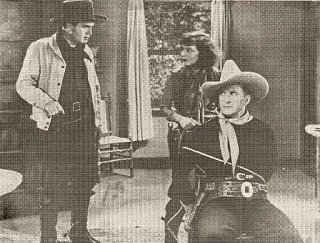
Tim McCoy-Dorothy Burgess-Rockliffe Fellowes "Rusty rides alone" 1933, de D. Ross Lederman.
4 notes
·
View notes
Text
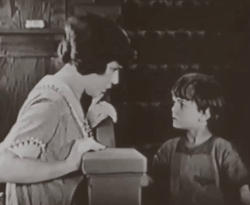


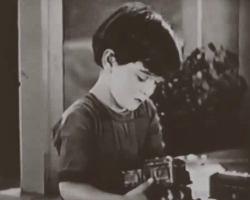

The Signal Tower (1924)
#the signal tower 1924#frankie darro#6 year old darro#darro in silent era#rockliffe fellowes#virginia valli
3 notes
·
View notes
Text

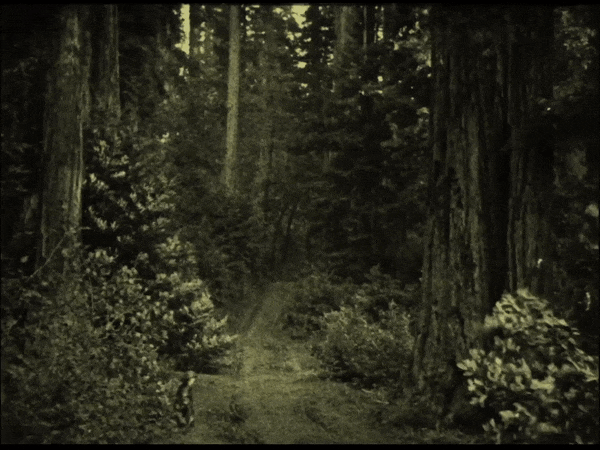

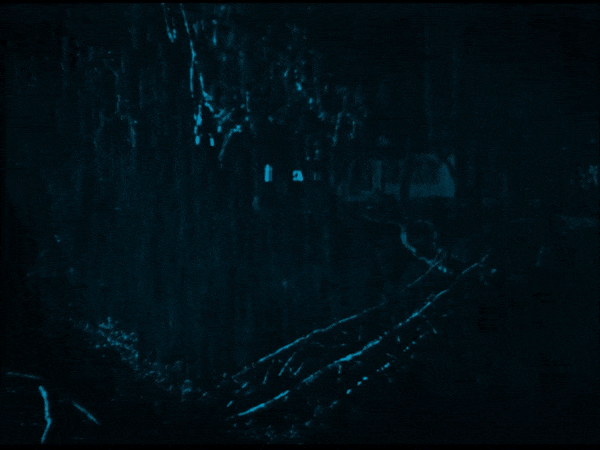
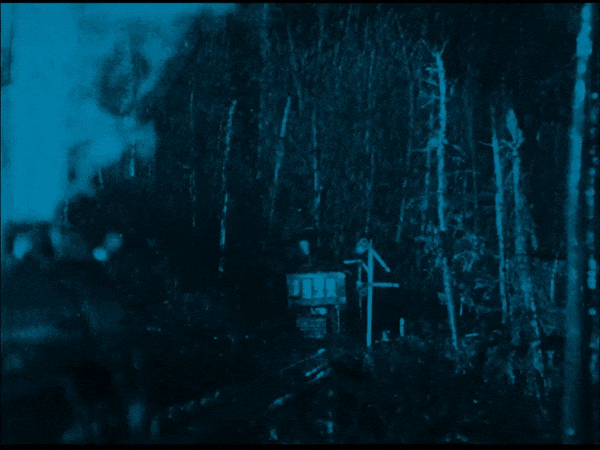
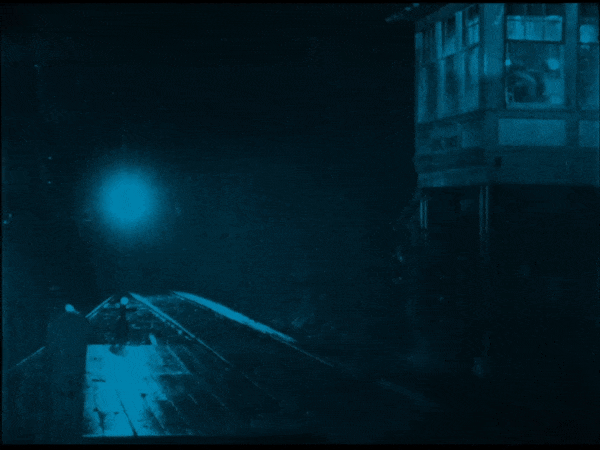
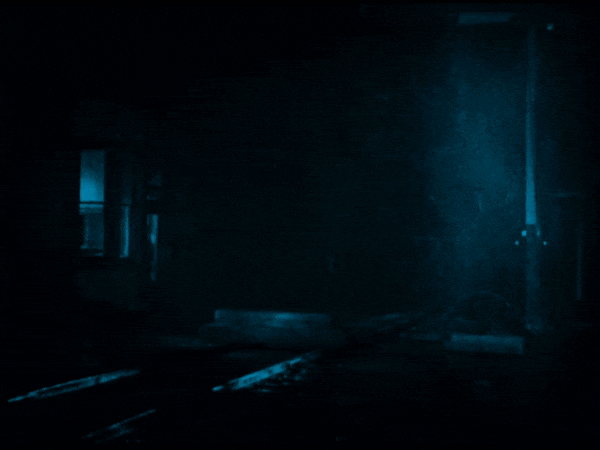
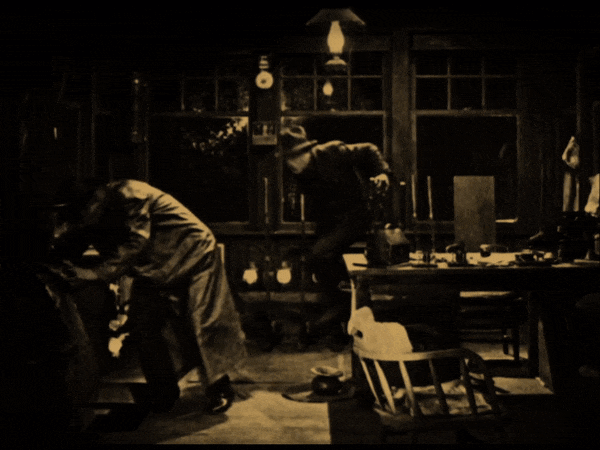
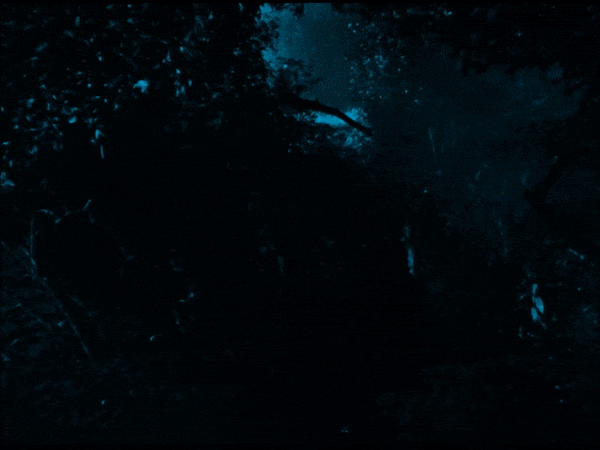

The Signal Tower (1924)
[letterboxd | imdb | SF Silent Film]
Director: Clarence Brown
Cinematographer: Ben Reynolds
Performers: Jitney the dog, Frankie Darro, Rockliffe Fellowes, & Wallace Beery
#1920s#1924#silent cinema#silent film#silent movies#classic film#classic movies#film#american film#classicfilmblr#filmgifs#my gifs#my edits#Frankie Darro#Wallace Beery#trains
13 notes
·
View notes
Text

This is the second in our occasional series featuring luminaries of stage and screen with a strong personal or professional connection with Northeast England, inspired by @robbielewis. This time, Edward Wilson (1947-2008).
Edward Wilson was born into a South Shields mining family in 1947. He performed with the National Youth Theatre and aged 19, formed his own company, the South Shields Youth Theatre, staging their plays at the local Pier Pavilion.
According to his obituary in The Guardian;
"…The local press raved, while stern-faced local Labour mandarins wondered if the radical ideas on their stage were too dangerous. "Kitchen sink drama" had arrived, and so had Ed Wilson…"
He attended Manchester University, and continued acting and directing at the NYT, for which he was artistic director from 1987 to 2003 (or 2004, depending on the source). He also demonstrated a talent for business and administration, successfully negotiating major corporate sponsorships and Lottery funding to ensure the NYT’s ongoing viability.
On television, he had a major role in 35 episodes of the 1970s working-class family saga, When the Boat Comes In, as Billy Seaton, a radically minded, newly qualified doctor working in impoverished pre-NHS Tyneside communities. Billy Seaton's complicated and often combative relationship with Seaton family friend, capitalist chancer Jack Ford (James Bolam), was an ongoing theme that brought out some intense and compelling performances from both actors.
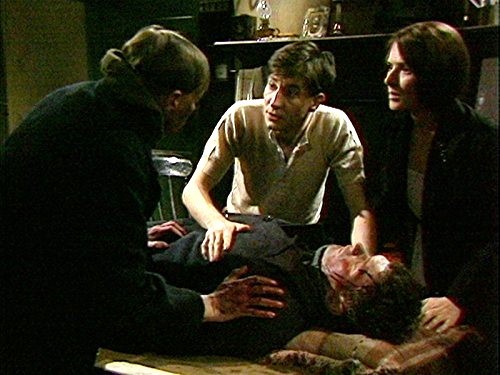
Edward Wilson was one of the few original cast members to return for the final, fourth series in 1981, where the action largely shifted away from Tyneside, and explored left-wing politics surrounding the Spanish Civil War.
Other television appearances included the historical dramatised documentary series, Fall of Eagles, as Russian revolutionary Julius Martov (with Patrick Stewart as Lenin and Michael Kitchen as Trotsky), and a regular role in the 1980s police drama, Rockliffe’s Babies.
In 2004, he went to work in the US as the director of the Los Angeles Young Actors Company, was diagnosed with cancer in 2007, and passed away in 2008, aged 60.
By all accounts he was extremely well loved and respected by the actors he had discovered, mentored and directed during his time at the NYT, including Daniel Craig, who provided ongoing financial and practical assistance during his final illness.
The Independent:
"…Ed Wilson did not merely select the members of the NYT during his time there – he championed each and every one, and retained an interest in them long after they had left the company. A noted wit, he was as clever as he was stylish, and he had an undoubted genius for friendship. When tragedy or bereavement struck, he was magnificent, and he would move mountains to help a friend in need..."
See also, John Nightingale, fellow alumni of the National Youth Theatre;
Sources: the Independent, The Guardian, IMDb
#social history#working class history#kitchen sink movement#social justice#northeast england#british actors#british theatre#edward wilson#national youth theatre#tyneside
17 notes
·
View notes
Photo
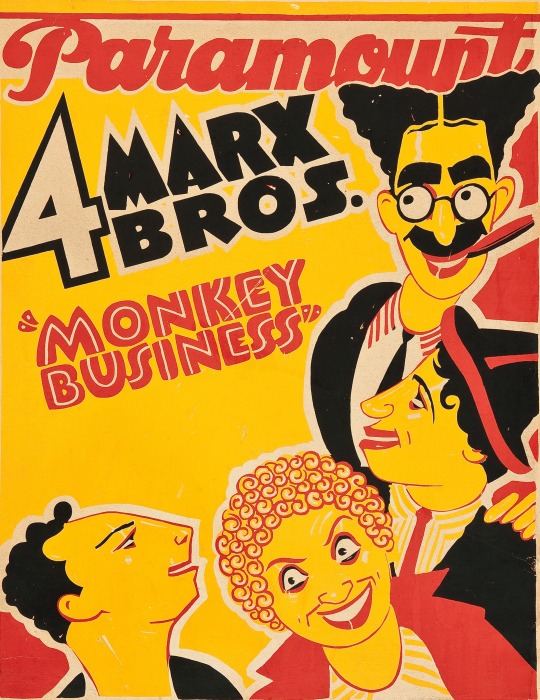
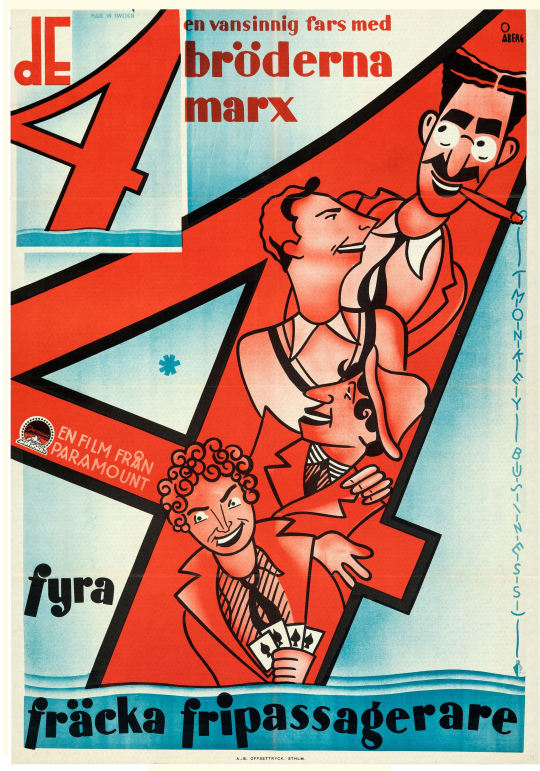
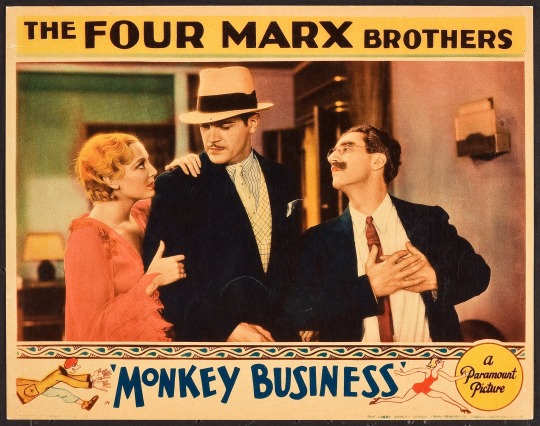
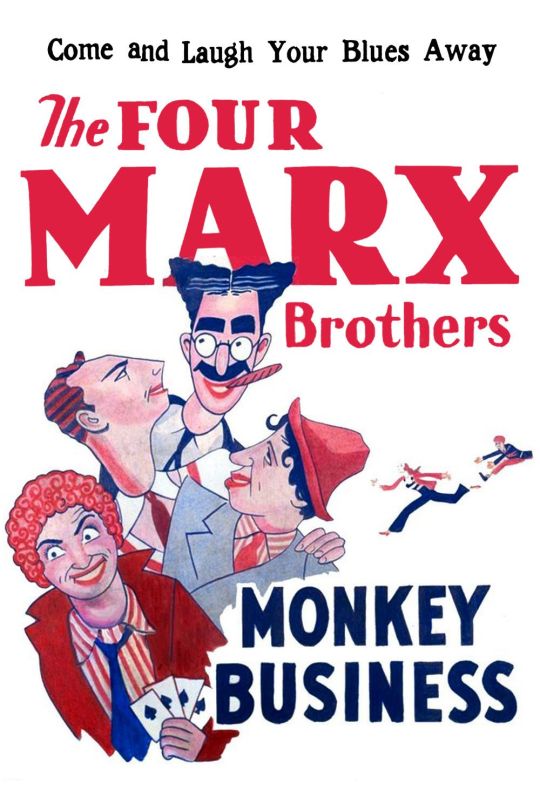
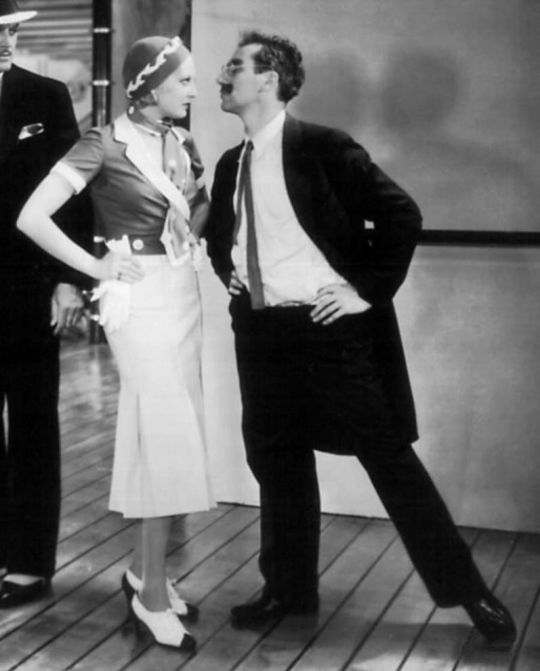
Monkey Business (1931) Norman Z. McLeod
April 22nd 2021
#monkey business#1931#norman z. mcleod#marx brothers#groucho#harpo#chico#zeppo#thelma todd#rockliffe fellowes#harry woods#ruth hall#pre-code
24 notes
·
View notes
Photo
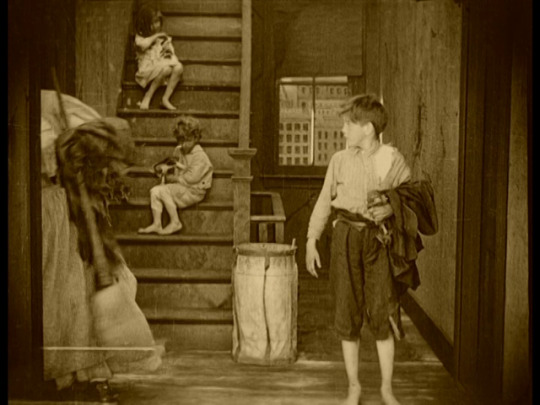

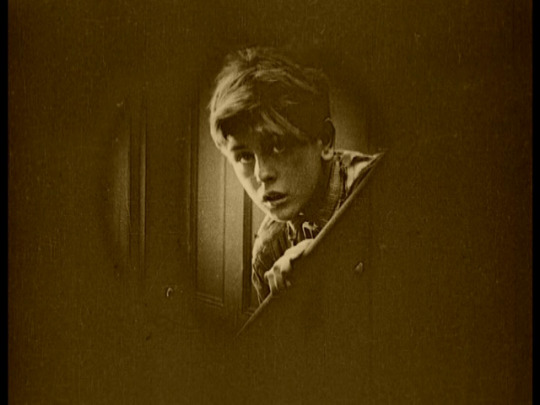
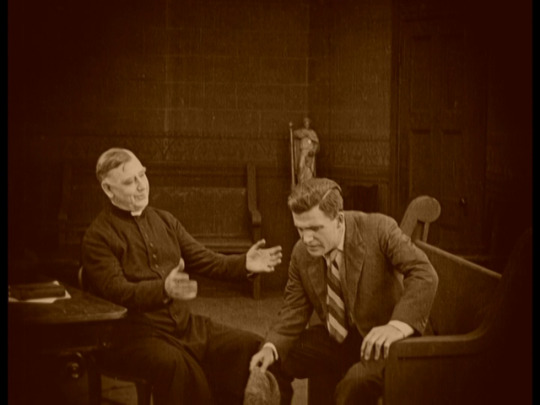
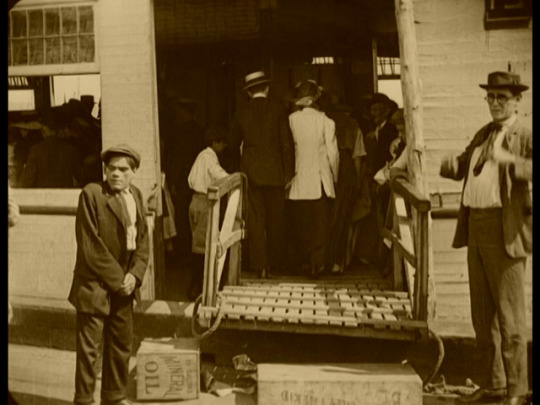
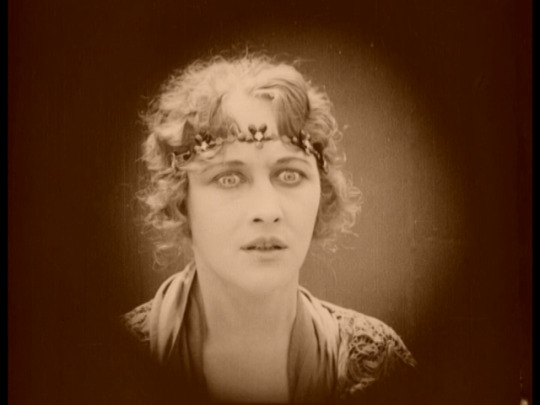
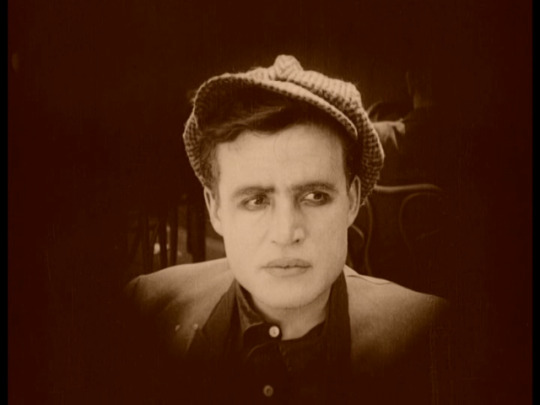
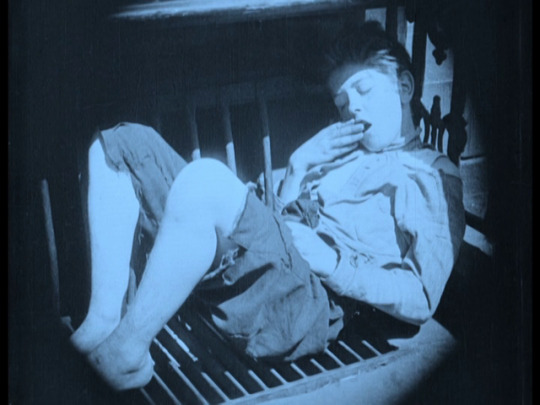
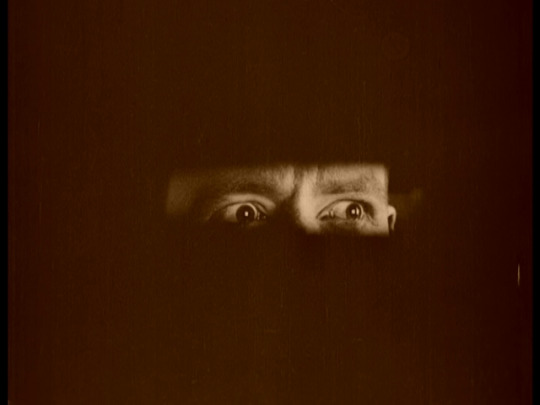
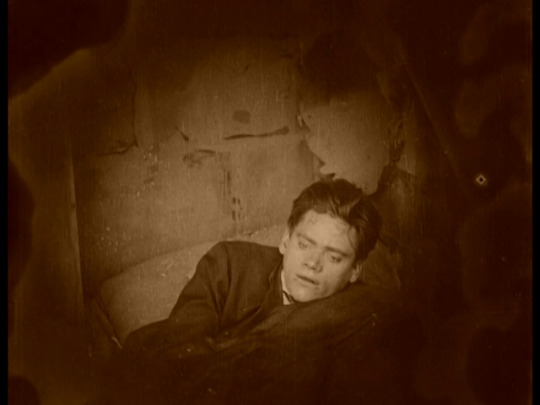
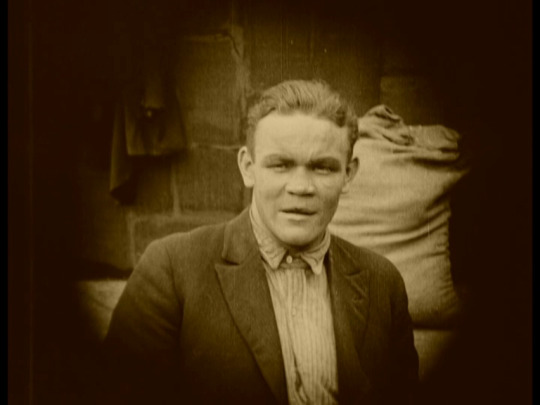
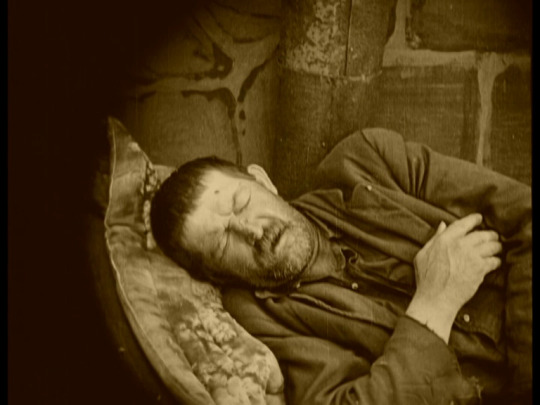
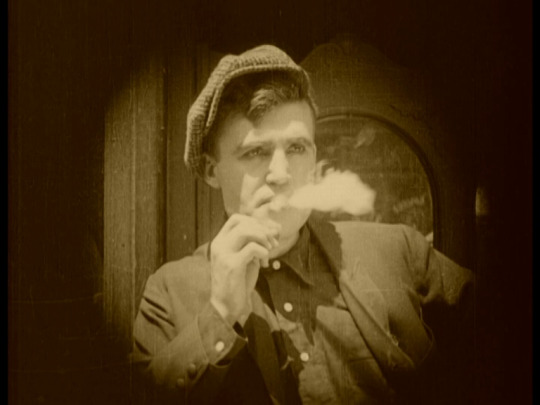
The Regeneration 1915
#The Regeneration#1915#raoul walsh#owen kildare#james a. marcus#ces tronches#ce grain#cette grâce#muet#noir et blanc#teinté#Rockliffe Fellowes#le bossu intriguant#7/10
2 notes
·
View notes
Text
Here are 10 things you should know about Rockliffe Fellowes, born 139 years ago today. He began his career on the stage and made more than 60 movies over a 20-year film career.
#Rockliffe Fellowes#old movies#silent movies#film noir#old hollywood#classic film#classic Broadway#classic movies#classic Hollywood#precode#precode movies#pre-code#pre-code movies
0 notes
Text
Rockliffe Fellowes: Business and "Monkey Business"
Rockliffe Fellowes: Business and “Monkey Business”
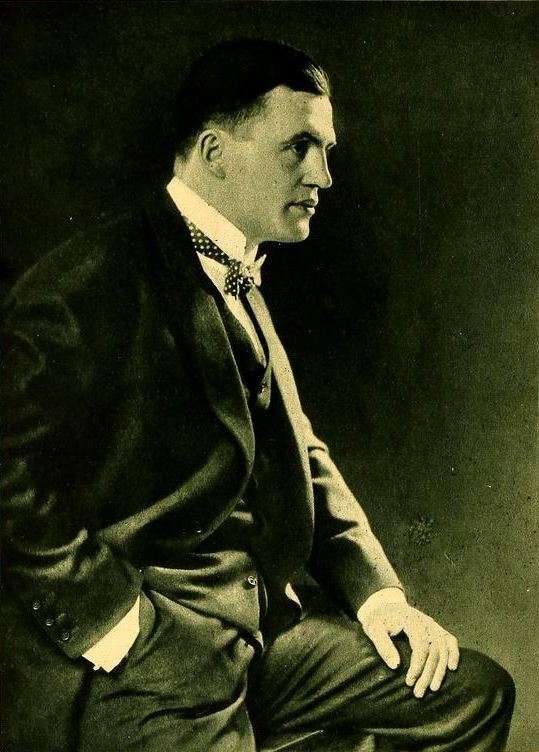
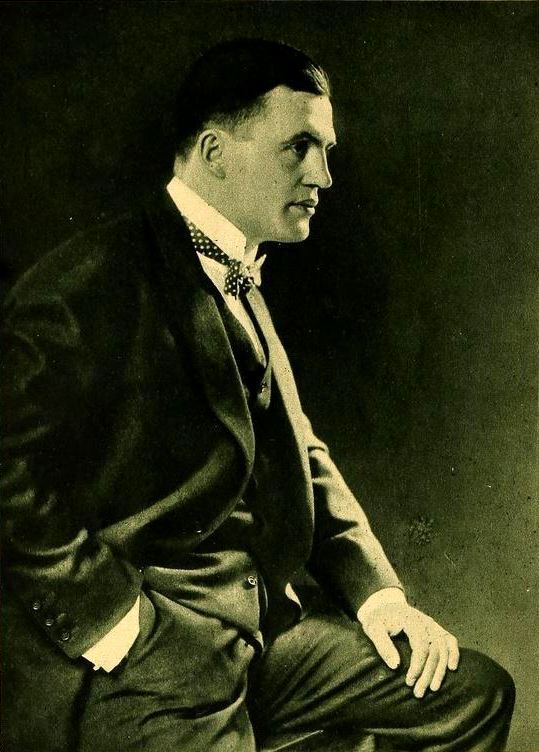
This photo of Rockliffe Fellows was taken almost exactly a century ago (April 1920), when he was at the peak of his career
Contemporaries of Rockliffe Fellowes (Rockliffe St. Patrick Fellowes, 1883-1950) would be surprised to learn that his best remembered role would turn out to be his supporting turn as gangster Joe Helton in the Marx Brothers Monkey Business (1931). A decade and a half earlier…
View On WordPress
#actor#Broadway#character#film#films#gangster#Joe Helton#Monkey Business#movie#movies#Regeneration#Rockcliff Fellowes#Rockliffe Fellowes#silent#star
0 notes
Text
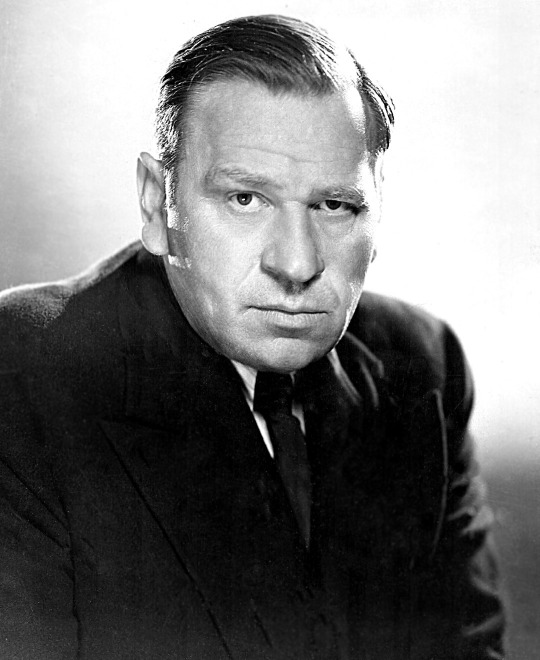
Wallace Fitzgerald Beery (April 1, 1885 – April 15, 1949) was an American film and stage actor. He is best known for his portrayal of Bill in Min and Bill (1930) opposite Marie Dressler, as Long John Silver in Treasure Island (1934), as Pancho Villa in Viva Villa! (1934), and his titular role in The Champ (1931), for which he won the Academy Award for Best Actor. Beery appeared in some 250 films during a 36-year career. His contract with Metro-Goldwyn-Mayer stipulated in 1932 that he would be paid $1 more than any other contract player at the studio. This made Beery the highest-paid film actor in the world during the early 1930s. He was the brother of actor Noah Beery Sr. and uncle of actor Noah Beery Jr.
For his contributions to the film industry, Beery was posthumously inducted into the Hollywood Walk of Fame with a motion pictures star in 1960. His star is located at 7001 Hollywood Boulevard.
Beery was born the youngest of three boys in 1885 in Clay County, Missouri, near Smithville. The Beery family left the farm in the 1890s and moved to nearby Kansas City, Missouri, where the father was a police officer. He may have had an older sister based on a suspected recent found Victorian photo of a boy who strongly resembles Beery and an older girl.
Beery attended the Chase School in Kansas City and took piano lessons as well, but showed little love for academic matters. He ran away from home twice, the first time returning after a short time, quitting school and working in the Kansas City train yards as an engine wiper. Beery ran away from home a second time at age 16, and joined the Ringling Brothers Circus as an assistant elephant trainer. He left two years later, after being clawed by a leopard.
Wallace Beery joined his older brother Noah in New York City in 1904, finding work in comic opera as a baritone and began to appear on Broadway as well as summer stock theatre. He appeared in The Belle of the West in 1905. His most notable early role came in 1907 when he starred in The Yankee Tourist to good reviews.
In 1913, he moved to Chicago to work for Essanay Studios. His first movie was likely a comedy short, His Athletic Wife (1913).
Beery was then cast as Sweedie, a Swedish maid character he played in drag in a series of short comedy films from 1914–16. Sweedie Learns to Swim (1914) co-starred Ben Turpin. Sweedie Goes to College (1915) starred Gloria Swanson, whom Beery married the following year.
Other Beery films (mostly shorts) from this period included In and Out (1914), The Ups and Downs (1914), Cheering a Husband (1914), Madame Double X (1914), Ain't It the Truth (1915), Two Hearts That Beat as Ten (1915), and The Fable of the Roistering Blades (1915).
The Slim Princess (1915), with Francis X. Bushman, was one of the earliest feature-length films. Beery also did The Broken Pledge (1915) and A Dash of Courage (1916), both with Swanson.
Beery was a German soldier in The Little American (1917) with Mary Pickford, directed by Cecil B. De Mille. He did some comedies for Mack Sennett, Maggie's First False Step (1917) and Teddy at the Throttle (1917), but he would gradually leave that genre and specialize in portrayals of villains prior to becoming a major leading man during the sound era.
In 1917 Beery portrayed Pancho Villa in Patria at a time when Villa was still active in Mexico. (Beery reprised the role 17 years later in Viva Villa!.)
Beery was a villainous German in The Unpardonable Sin (1919) with Blanche Sweet. For Paramount he did The Love Burglar (1919) with Wallace Reid; Victory (1919), with Jack Holt; Behind the Door (1919), as another villainous German; and The Life Line (1919) with Holt.
Beery was the villain in five major releases in 1920: 813; The Virgin of Stamboul for director Tod Browning; The Mollycoddle with Douglas Fairbanks, in which Fairbanks and Beery fistfought as they tumbled down a steep mountain (see the photograph in the gallery below); and in the non-comedic Western The Round-Up starring Roscoe Arbuckle as an obese cowboy in a well-received serious film with the tagline "Nobody loves a fat man." Beery continued his villainy cycle that year with The Last of the Mohicans, playing Magua.
Beery had a supporting part in The Four Horsemen of the Apocalypse (1920) with Rudolph Valentino. He was a villainous Tong leader in A Tale of Two Worlds (1921) and was the bad guy again in Sleeping Acres (1922), Wild Honey (1922), and I Am the Law (1922), which also featured his brother Noah Beery Sr.
Beery had a large then-rare heroic part as King Richard I (Richard the Lion-Hearted) in Robin Hood (1922), starring Douglas Fairbanks as Robin Hood. The lavish movie was a huge success and spawned a sequel the following year starring Beery in the title role of Richard the Lion-Hearted.
Beery had an important unbilled cameo as "the Ape-Man" in A Blind Bargain (1922) starring Lon Chaney (Beery is seen crouching, in full ape-man make-up, in the background of some of the movie's posters), and a supporting role in The Flame of Life (1923). He played another historical king, King Philip IV of Spain in The Spanish Dancer (1923) with Pola Negri.
Beery starred in an action melodrama, Stormswept (1923) for FBO Films alongside his elder brother, Noah Beery Sr.. The tagline on the movie's posters was "Wallace and Noah Beery – The Two Greatest Character Actors on the American Screen."
Beery played his third royal, the Duc de Tours, in Ashes of Vengeance (1923) with Norma Talmadge, then did Drifting (1923) with Priscilla Dean for director Browning.
Beery had the titular role in Bavu (1923), about Bolsheviks and the Russian Revolution. He co-starred with Buster Keaton in the comedy Three Ages (1923), the first feature Keaton wrote, produced, directed and starred in.
Beery was a villain in The Eternal Struggle (1923), a Mountie drama, produced by Louis B. Mayer, who would eventually become crucial to Beery's career. He was reunited with Dean and Browning in White Tiger (1923), then played the title role in the aforementioned Richard the Lion-Hearted (1923), a sequel to Robin Hood based on Sir Walter Scott's The Talisman.
Beery was in The Drums of Jeopardy (1923) and had a supporting role in The Sea Hawk (1924) for director Frank Lloyd. He also appeared in a supporting role for Clarence Brown's The Signal Tower (1925) starring Virginia Valli and Rockliffe Fellowes.
Beery signed a contract with Paramount Pictures. He had a support role in Adventure (1925) directed by Victor Fleming.
At First National, he was given the star role of Professor Challenger in Arthur Conan Doyle's dinosaur epic The Lost World (1925), arguably his silent performance most frequently screened in the modern era. Beery was top billed in Paramount's The Devil's Cargo (1925) for Victor Fleming, and supported in The Night Club (1925), The Pony Express (1925) for James Cruze, and The Wanderer (1925) for Raoul Walsh.
Beery starred in a comedy with Raymond Hatton, Behind the Front (1926) and he was a villain in Volcano! (1926). He was a bos'n in Old Ironsides (1926) for director James Cruze, with Charles Farrell in the romantic lead.
Beery had the title role in the baseball movie Casey at the Bat (1927). He was reunited with Hatton in Fireman, Save My Child (1927) and Now We're in the Air (1927). The latter also featured Louise Brooks who was Beery's co star in Beggars of Life (1928), directed by William Wellman, which was Paramount's first part-talkie movie.
There was a fourth comedy with Hatton, Wife Savers (1929), then Beery starred in Chinatown Nights (1929) for Wellman, produced by a young David O. Selznick. This film was shot silent with the voices dubbed in by the actors afterward, which worked spectacularly well with Beery's resonant voice, although the technique was not used again during the silent era for another full-length feature. Beery then played in Stairs of Sand (1929), a Western also starring Jean Arthur (who would play the leading lady in the Western film Shane twenty-four years later) before being fired by Paramount.
Irving Thalberg signed Beery to Metro-Goldwyn-Mayer as a character actor. The association began well when Beery played the savage convict "Butch", a role originally intended for Lon Chaney Sr. (who died that same year), in the highly successful 1930 prison film The Big House, directed by George W. Hill; Beery was nominated for the Academy Award for Best Actor.
Beery's second film for MGM was also a huge success: Billy the Kid (1930), an early widescreen picture in which he played Pat Garrett. He supported John Gilbert in Way for a Sailor (1930) and Grace Moore in A Lady's Morals (1930), portraying P. T. Barnum in the latter.
Beery was well established as a leading man and top rank character actor. What really made him one of the cinema's foremost stars was Min and Bill (1930) opposite Marie Dressler and directed by George W. Hill, a sensational success.
Beery made a third film with Hill, The Secret Six (1931), a gangster movie with Jean Harlow and Clark Gable in key supporting roles. The picture was popular but was surpassed at the box office by The Champ, which Beery made with Jackie Cooper for director King Vidor. The film, especially written for Beery, was another box office sensation. Beery shared the Best Actor Oscar with Fredric March. Though March received one vote more than Beery, Academy rules at the time—since rescinded—defined results within one vote of each other as "ties".[8]
Beery's career went from strength to strength. Hell Divers (1932), a naval airplane epic also starring a young Clark Gable billed under Beery, was a big hit. So too was the all-star Grand Hotel (1932), in which Beery was billed fourth, under Greta Garbo, John Barrymore, and Joan Crawford, one of the very few times he would not be top billed for the rest of his career. In 1932 his contract with MGM stipulated that he be paid a dollar more than any other contract player at the studio, making him the world's highest-paid actor.
Beery was a German wrestler in Flesh (1932), a hit directed by John Ford but Ford removed his directorial credit before the film opened, so the picture screened with no director listed despite being labeled "A John Ford Production" in the opening title card. Next Beery was in another all-star ensemble blockbuster, Dinner at Eight (1933), with Jean Harlow holding her own as Beery's comically bickering wife. This time Beery was billed third, under Marie Dressler and John Barrymore.
Beery was loaned out to the new Twentieth Century Pictures for the boisterously fast-paced comedy/drama The Bowery (1933), also starring George Raft, Jackie Cooper and Fay Wray, and featuring Pert Kelton, under the direction of Raoul Walsh. The picture was a smash hit.
Back at MGM he played the title role of Pancho Villa in Viva Villa! (1933) and was reunited with Dressler in Tugboat Annie (1933), a massive hit. He was Long John Silver in Treasure Island (1934), described as a box office "disappointment"[9] despite being MGM's third largest hit of the season, and remains currently viewed as featuring one of Beery's iconic performances.
Beery returned to Twentieth Century Productions for The Mighty Barnum (1934) in which he played P. T. Barnum again. Back at MGM he was a kindly sergeant in West Point of the Air (1935) and was in an all-star spectacular, China Seas (1935), this time billed beneath Clark Gable.
O'Shaughnessy's Boy (1935) reunited Beery and Jackie Cooper. He had the lead as the drunken uncle in MGM's adaptation of Ah, Wilderness! (1936) and went back to Twentieth Century – now 20th Century Fox – for A Message to Garcia (1936).
At MGM he was in Old Hutch (1936) and The Good Old Soak (1937) then he was back at Fox for Slave Ship (1937), taking second billing under Warner Baxter, a rarity for Beery after Min and Bill catapulted his career into the stratosphere in 1931, during which he received top billing in all but six films (Min and Bill, Grand Hotel, Tugboat Annie, Dinner at Eight, China Seas and Slave Ship).
The status of Beery's films went into a decline, possibly due to a scandal in which Beery was implicated in the death of Ted Healy in 1937, which was apparently kept out of the newspapers by the studio's "fixer" Eddie Mannix, who eventually became head of MGM. After an abrupt European vacation, Beery was in The Bad Man of Brimstone (1938) with Dennis O'Keefe (and Noah Beery Sr. in a cameo role as a bartender), Port of Seven Seas (1938) with Maureen O'Sullivan, Stablemates (1938) with Mickey Rooney, Stand Up and Fight (1939) with Robert Taylor, Sergeant Madden (1939) with Tom Brown, Thunder Afloat (1939) with Chester Morris, The Man from Dakota (1940) with Dolores del Río, and 20 Mule Team (1940) with Marjorie Rambeau, Anne Baxter and Noah Beery Jr., enjoying top billing in all of them.
Wyoming (1940) teamed Beery with Marjorie Main. After The Bad Man (1941), which also stars Lionel Barrymore and future US president Ronald Reagan, and was the remake of a Walter Huston picture, MGM reunited Beery and Main in Barnacle Bill (1941), The Bugle Sounds (1941), and Jackass Mail (1942).
Beery did a war film, Salute to the Marines (1943) then was back with Main in Rationing (1944). Barbary Coast Gent (1944), a broad Western comedy in which Beery played a bombastic con man, teamed him with Binnie Barnes. He did another war film, This Man's Navy (1945), then made another Western with Main, Bad Bascomb (1946), a huge hit, helped by Margaret O'Brien's casting.
The Mighty McGurk (1947) put Beery with another child star of the studio, Dean Stockwell. Alias a Gentleman (1947) was the first of Beery's movies to lose money during the sound era. Beery received top billing for A Date with Judy (1949), a hugely popular musical featuring Elizabeth Taylor. Beery's last film, again featuring Main, Big Jack (1949), also lost money according to Mannix's reckoning.
On March 27, 1916, at the age of 30, Beery married 17-year-old actress Gloria Swanson in Los Angeles. The two had co-starred in Sweedie Goes to College. Although Beery had enjoyed popularity with his Sweedie shorts, his career had taken a dip, and during the marriage to Swanson, he relied on her as a breadwinner. According to Swanson's autobiography, Beery raped her on their wedding night, and later tricked her into swallowing an abortifacient when she was pregnant, which caused her to lose their child. Swanson filed for divorce in 1917 and it was finalized in 1918.
On August 4, 1924, Beery married actress Rita Gilman (Mary Areta Gilman; 1898–1986) in Los Angeles. The couple adopted Carol Ann Priester (1930–2013), daughter of Rita Beery's mother's half-sister, Juanita Priester (née Caplinger; 1899–1931) and her husband, Erwin William Priester (1897–1969). After 14 years of marriage, Rita filed for divorce on May 1, 1939, in Carson City, Ormsby County, Nevada. Within 20 minutes of filing, she won the decree. Rita remarried 15 days later, on May 16, 1939, to Jessen Albert D. Foyt (1907–1945), filing her marriage license with the same county clerk in Carson City.
n December 1937, comedic actor Ted Healy was involved in a drunken altercation at Cafe Trocadero on the Sunset Strip. E. J. Fleming, in his 2005 book, The Fixers: Eddie Mannix, Howard Strickling and the MGM Publicity Machine, asserts that Healy was attacked by three men:
Future James Bond producer Albert "Cubby" Broccoli
Local mob figure Pat DiCicco (who was Broccoli's cousin as well as the former husband of Thelma Todd and the future husband of Gloria Vanderbilt)
Wallace Beery
Fleming writes that this beating led to Healy's death a few days later.
Around December 1939, Beery, recently divorced, adopted a seven-month-old girl, Phyllis Ann Beery. Phyllis appeared in MGM publicity photos when adopted, but was never mentioned again. Beery told the press he had taken the girl in from a single mother, recently divorced, but he had filed no official adoption papers.
Beery was considered misanthropic and difficult to work with by many of his colleagues. Mickey Rooney, one of Beery's few co-stars to consistently speak highly of him in subsequent decades, related in his autobiography that Howard Strickling, MGM's head of publicity, once went to Louis B. Mayer to complain that Beery was stealing props from the studio's sets. "And that wasn't all", Rooney continued. "He went on for some minutes about the trouble that Beery was always causing him ... Mayer sighed and said, 'Yes, Howard, Beery's a son of a bitch. But he's our son of a bitch.' Strickling got the point. A family has to be tolerant of its black sheep, particularly if they brought a lot of money into the family fold, which Beery certainly did."
Child actors, in particular, recalled unpleasant encounters with Beery. Jackie Cooper, who made several films with him early in his career, called him "a big disappointment", and accused him of upstaging, and other attempts to undermine his performances, out of what Cooper presumed was jealousy. He recalled impulsively throwing his arms around Beery after one especially heartfelt scene, only to be gruffly pushed away. Child actress Margaret O'Brien claimed that she had to be protected by crew members from Beery's insistence on constantly pinching her.
In his memoir Rooney described Beery as "... a lovable, shambling kind of guy who never seemed to know that his shirttail belonged inside his pants, but always knew when a little kid actor needed a smile and a wink or a word of encouragement." He did concede that "not everyone loved [Beery] as much as I did." Beery, by contrast, described Rooney as a "brat", but a "fine actor". Future author Ray Bradbury recalled meeting Beery as a young boy on a Hollywood street and that his autograph request resulted in Beery cursing and spitting on him.
Beery owned and flew his own planes, one a Howard DGA-11. On April 15, 1933, he was commissioned a lieutenant commander in the United States Navy Reserve at NRAB Long Beach. One of his proudest achievements was catching the largest giant black sea bass in the world — 515 pounds (234 kg) — off Santa Catalina Island in 1916, a record that stood for 35 years.
A noteworthy episode in Beery's life is chronicled in the fifth episode of Ken Burns' documentary The National Parks: America's Best Idea: In 1943, President Franklin D. Roosevelt signed an executive order creating Jackson Hole National Monument to protect the land adjoining the Grand Tetons in Wyoming. Local ranchers, outraged at the loss of grazing lands, compared FDR's action to Hitler's taking of Austria. Led by an aging Beery, they protested by herding 500 cattle across the monument lands without a permit.
On February 13, 1948, Gloria Schumm (aka Gloria Smith Beery, née Florence W. Smith; 1916–1989) filed a paternity suit against Beery. Beery, through his lawyer, Norman Ronald Tyre (1910–2002), initially offered $6,000 as a settlement, but denied being the father. Gloria had given birth on February 7, 1948, to Johan Richard Wallace Schumm. Gloria, in 1944, divorced Stuttgart-born Hollywood actor Hans Schumm (né Johann Josef Eugen Schumm; 1896–1990), but remarried him August 21, 1947, after realizing that she was pregnant. Prior to remarrying Hans Schumm, Gloria, on August 4, 1947, met with Beery at his home, where he gave her the name and address of a physician to submit an examination.[29] At or around that time, she also asked Beery to marry her to legitimatize the expected child (words), which Beery refused.
According to newspapers, Gloria claimed to have been intimate with Wallace Beery on or about May 1, 1947, at his home in Beverly Hills (in the court proceedings, however, she claimed to have been intimate with Beery on May 17, 1947). Beery conceded that he had known Gloria for about 15 years and that, under the pseudonym "Gloria Whitney", she had played bit roles in 6 films that he starred in. She again separated from Hans Schumm April 15, 1948.
Beery died of a heart attack on April 15, 1949 (14 months, 1 week, and 1 day after Johan Schumm's birth) — while the suit was pending. Beery had been reading a newspaper at his Beverly Hills home when he collapsed.[31] His body was interred at Forest Lawn Memorial Park in Glendale, California. The inscription on his grave reads, "No man is indispensable but some are irreplaceable."
Beery died intestate. In the paternity suit, Gloria Schumm's attorneys demanded $104,135 against Beery's $2,220,000 estate. In February 1952, Judge Newcomb Condee approved a $26,750 settlement from the estate. Gloria Schumm accepted the settlement, and Beery's paternity of Johan Schumm was not acknowledged.
When Mickey Rooney's father died less than a year later, Rooney arranged to have him buried next to his old friend. "I thought it was fitting that these two comedians should rest in peace, side by side", he wrote.
The paternity suit, and subsequent suits – including appeals – extended through about 1952 and were internationally publicized, particularly in gossip columns and tabloids. The litigation has endured as case law with, among other things, treatises addressing the rights of illegitimate offspring against legitimate heirs in races for inheritance.
The upshot was that Schumm's paternity suit against Beery's estate put would-be half-siblings and other would-be family legatees, including a would-be uncle, Noah Beery, Sr., in the position as de facto defendants. Phyllis Ann Riley was not named in Beery's will. Part of plaintiff's claim, initially, hinged on whether an oral agreement was binding. Gloria had claimed that Beery, while alive, agreed to provide for the child. However, on November 17, 1949, Judge William B. McKesson (1895–1967) threw out Gloria's claim. The judge reasoned that any oral agreement between the two, specifically any that was intended to provide for maintenance and care of a minor, was not binding because the amount allegedly agreed upon was in excess of $500, which must be made in writing.
Another matter in the case hinged on a "peppercorn" rule. That is, in order for any agreement, oral or written, between Wallace and Gloria to be binding, there must be consideration. The court, initially, found that Beery agreed to an oral contract where Gloria would (i) include the name "Wallace" in the child's name if a male, or "Wally" if a female, and (ii) refrain from filing a paternity suit that both agreed would damage Beery's "social and professional standing as a prominent motion picture star."
Generally, under California state law at the time, a father who neither marries the mother nor acknowledges paternity does not have a right to name the child. That right belongs to the mother. In exchange for Gloria's promise to name the child "Wallace" or "Wally" (the promise representing a form of consideration), Wallace Beery agreed to arrange for the payment of $100 per week to the child (as a third-party beneficiary under the contract), plus a lump sum of $25,000 to the child when he or she attained age 21, in addition to the customary obligation to pay for the "maintenance, support and education according to the station in life and standard of living of Wallace Beery."
For his contributions to the film industry, Wallace Beery posthumously received a motion pictures star on the Hollywood Walk of Fame in 1960. His star is located at 7001 Hollywood Boulevard.
Beery is mentioned in the film Barton Fink, in which the lead character has been hired to write a wrestling screenplay to star Beery.
In the 1968 comedy "The Projectionist" actor and comedian Chuck McCann impersonates Beery quoting a line from "Min and Bill"
#wallace beery#silent era#silent hollywood#silent movie stars#golden age of hollywood#classic movie stars#classic hollywood#old hollywood#1910s movies#1920s hollywood#1930s hollywood#1940s hollywood
3 notes
·
View notes
Audio
Wla Garcia - “First Step (Step Up Mix By The Advent)”
Mixed Emotions (Montreal Mix Sessions Vol. 5) by Tiga
2000
Tech-House / Techno
***Song starts at 22:57 and ends at 25:02***
The career of Portugal's Wla Garcia started out like just about any other dance musician's: initially, he was a DJ. In awe of the success of his older brother, XL Garcia, who would play sets all around the country, Wla and a friend decided that they wanted to follow in XL's footsteps. By the mid-90s, Wla had achieved similar success to that of his brother and then started a popular event called "Saturday," for which he would book dance music stars like Trevor Rockliffe, Mike Dearborn, and Josh Wink. Garcia then joined Portugal's biggest booking agency, X-Club, which allowed him to play alongside more legends like Jeff Mills, Sven Väth, Richie Hawtin, and Adam Beyer.
After having achieved star status in his own country as a DJ, Garcia decided that he next wanted to try his hand at making his own tracks. The bio on his SoundCloud page picks it up from there:
In the late 90’s he set up his home studio and started producing, bringing out his first track on “Squeeze Records” in 2000. He started his own label called “Brotech” and the success was immediate, selling over 3000 copies of the first release “First Step” which was licensed to many CD compilations and mixed by many worldwide names such as Tiga, Space Djs and WJ Henze.
On the b-side of Garcia's debut record is a remix by fellow countryman, The Advent, which had originally been a pioneering dance duo, but had recently been cut down to one, thanks to the departure of founding member Colin McBean. Not long after the release of First Step, The Advent's remix was included on the Montreal-based Tiga's fantastic double-disc, high-energy dance mix, Mixed Emotions (Montreal Mix Sessions Vol. 5).
In comparison to the two untitled tracks on First Step's a-side, The Advent's remix doesn't really sound much like either one of them. While the main concern of both of Garcia's mixes is to produce rhythmically complex, drum-driven tracks that softly and subtly cycle through a series of looped pieces of percussion, The Advent seeks to add some melody to the program. He manages to maintain the hypnotic, locked-in, tribal, globally-flavored techno qualities that Garcia's productions imbue, but he also adds so much more to this remix that it almost sounds like a completely different track. The melody he lays atop is represented by a choppy and looped, wordless, leading vocal sample. The Advent also mixes in the occasional heavy load of jing-jing-jingling hi-hats, as well as hand claps and an extra layer of pinging bongos to the backbeat, which give the song a nice and bouncy tech-house type of flair.
A great early 2000s remix by The Advent here.
#tech house#tech house music#techno#techno music#house#house music#dance#dance music#electronic#electronic music#music#2000s#2000s music#2000's#2000's music#2000s tech house#2000's tech house#2000s techno#2000's techno#2000s house#2000's house#2000s house music#2000's house music#2000s dance#2000's dance#2000s dance music#2000's dance music#2000s electronic#2000's electronic#2000s electronic music
1 note
·
View note
Text
Monkey Business (1931) Review
Monkey Business (1931) Review
The four Marx Brothers are on board a ship to America as stowaways which means they are about to cause so much chaos! They end up involved with feuding gangsters and must save the day when arriving in America when the daughter of one gangster is kidnapped.
⭐️⭐️⭐️⭐️
(more…)
View On WordPress
#1931#Chico Marx#Comedy#Groucho Marx#Harpo Marx#Harry Woods#Marx Brothers#Monkey Business#Musical#Norman Z. McLeod#Review#Rockliffe Fellowes#Ruth Hall#S.J. Perelman#TCM#Thelma Todd#Tom Kennedy#Will B. Johnstone#Zeppo Marx
0 notes
Text
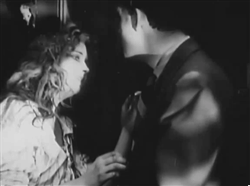

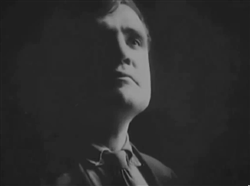

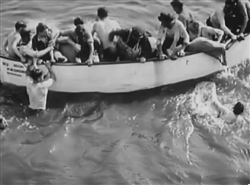

The Regeneration (1915, Raoul Walsh)
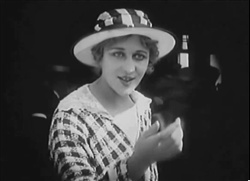

#the regeneration 1915#rockliffe fellowes#anna q nilsson#carl harbaugh#my favorite director#raoul walsh
5 notes
·
View notes
Text
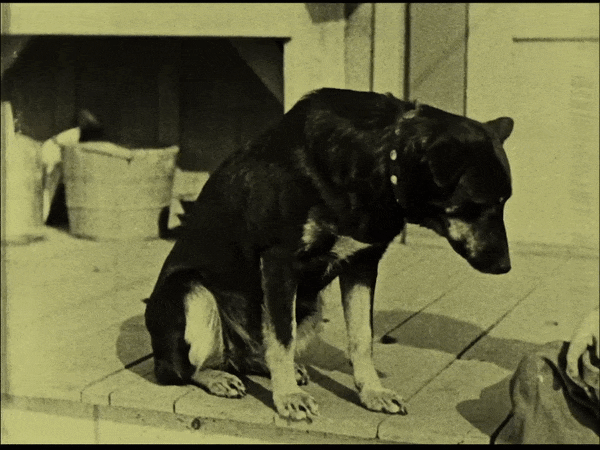


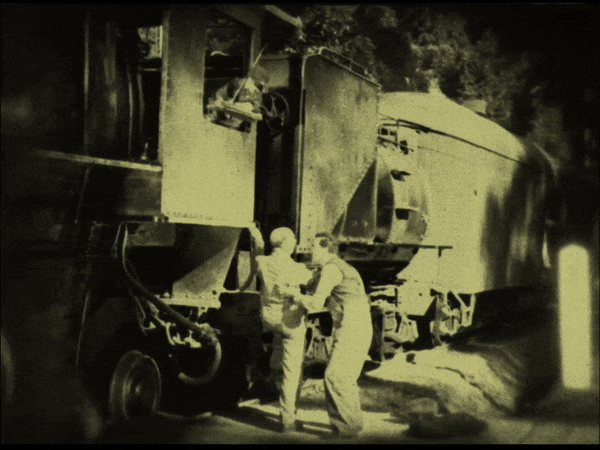
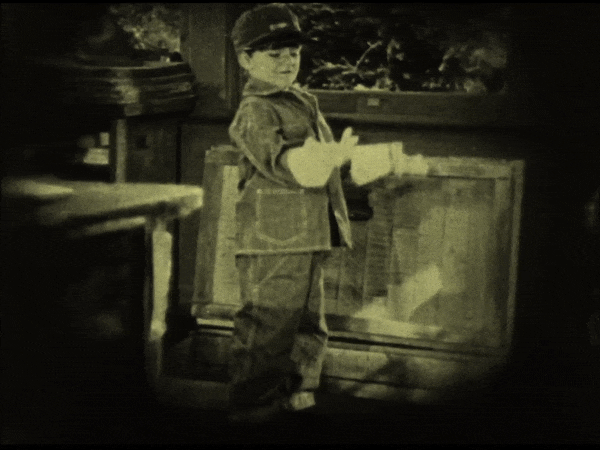
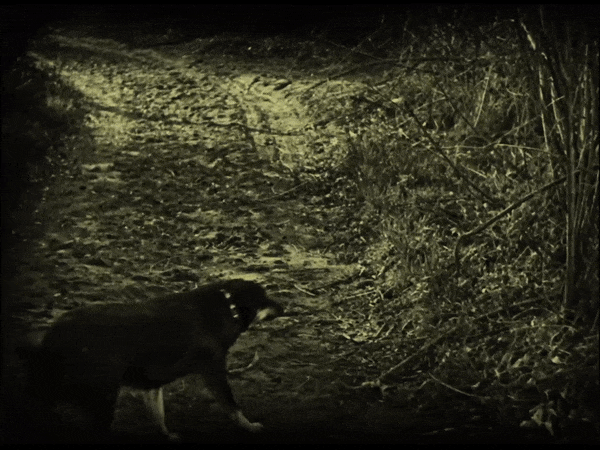
The Signal Tower (1924)
[letterboxd | imdb | SF Silent Film]
Director: Clarence Brown
Cinematographer: Ben Reynolds
Performers: Jitney the dog, Frankie Darro, Rockliffe Fellowes, Virginia Valli, & J. Farrell MacDonald
#1920s#1924#classic movies#classic film#silent cinema#silent movies#silent film#my edits#my gifs#classicfilmblr#cinema#cinematography#Virginia Valli#Frankie Darro#american film#trains
6 notes
·
View notes
Text
Mary Mallory / Hollywood Heights: ‘The Signal Tower’ Faces Danger
Mary Mallory / Hollywood Heights: ‘The Signal Tower’ Faces Danger
“The Signal Tower” in Picture-Play Magazine.
In 1923, Universal Studios handed Clarence Brown an opportunity to return to his youth by assigning him the film “The Signal Tower” to direct. A story of a railroad man directing train traffic and trying to read the signals in his own marriage, the movie seemed perfect for a former engineer who grew up near the railroad in Knoxville, Tenn.
Born 1890…
View On WordPress
#1924#Clarence Brown#Rockliffe Fellowes#SanFrancisco Silent Film Festival#silents#Virginia Valli#Wallace Beery
0 notes
Photo
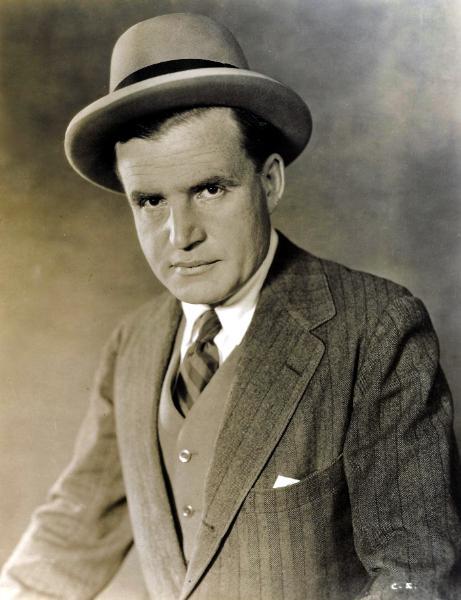
Rockliffe Fellowes in a publicity still. Rockliffe starred in Honesty - The Best Policy, a silent film that premiered Aug 8, 1926. Howard Hawks was credited as the author of the original story. Todd McCarthy in "The Grey Fox of Hollywood" writes "the finished film...seems to have borne only a partial resemblance to the idea Hawks submitted, since it was considerably reworked in the interim. It seems to have been something of a mishmash." No images from the film or film posters were found with a google image search.
Rockliffe had a supporting role in Howard Hawks' first film as a director, The Road to Glory, which had already premiered in Feb 1926, Two weeks after Honesty - The Best Policy, Howard Hawks' second film as a director, Fig Leaves, premiered.
1 note
·
View note